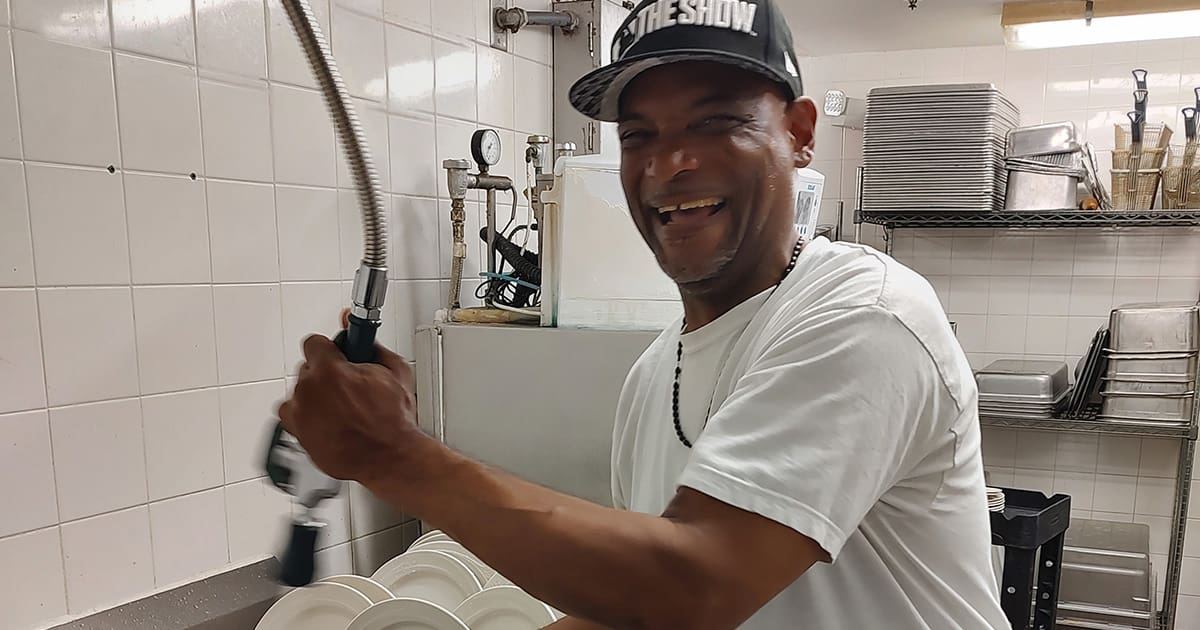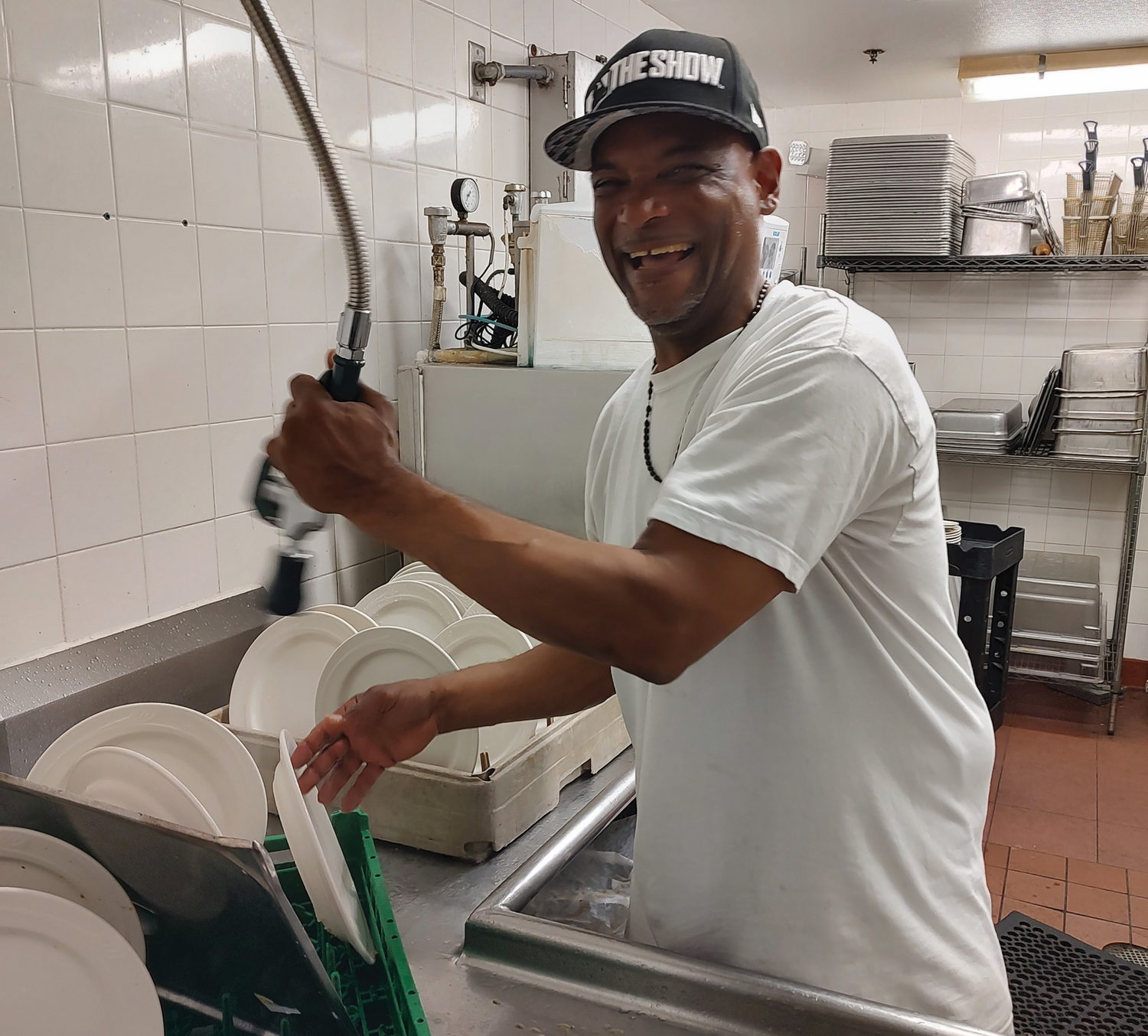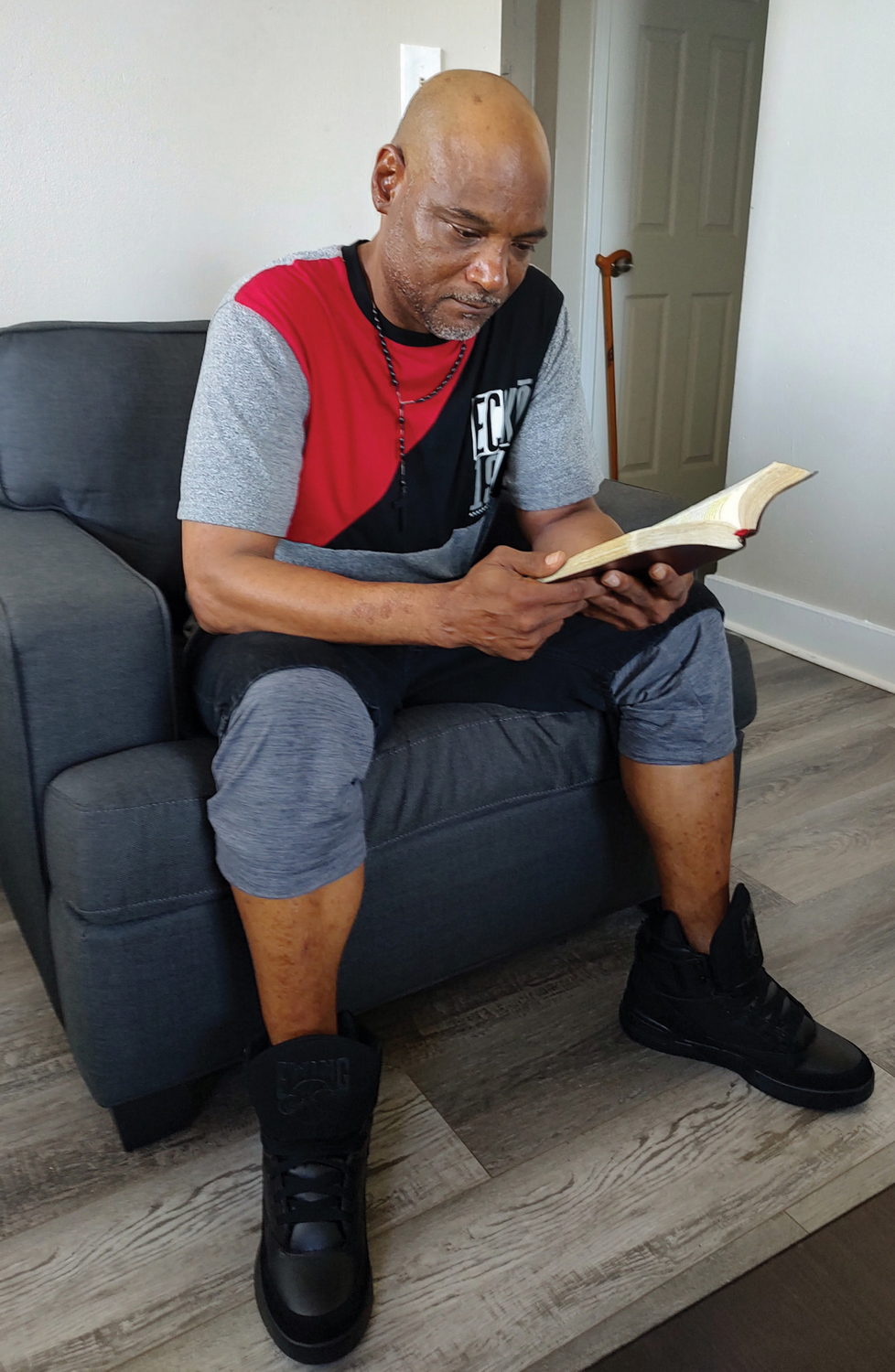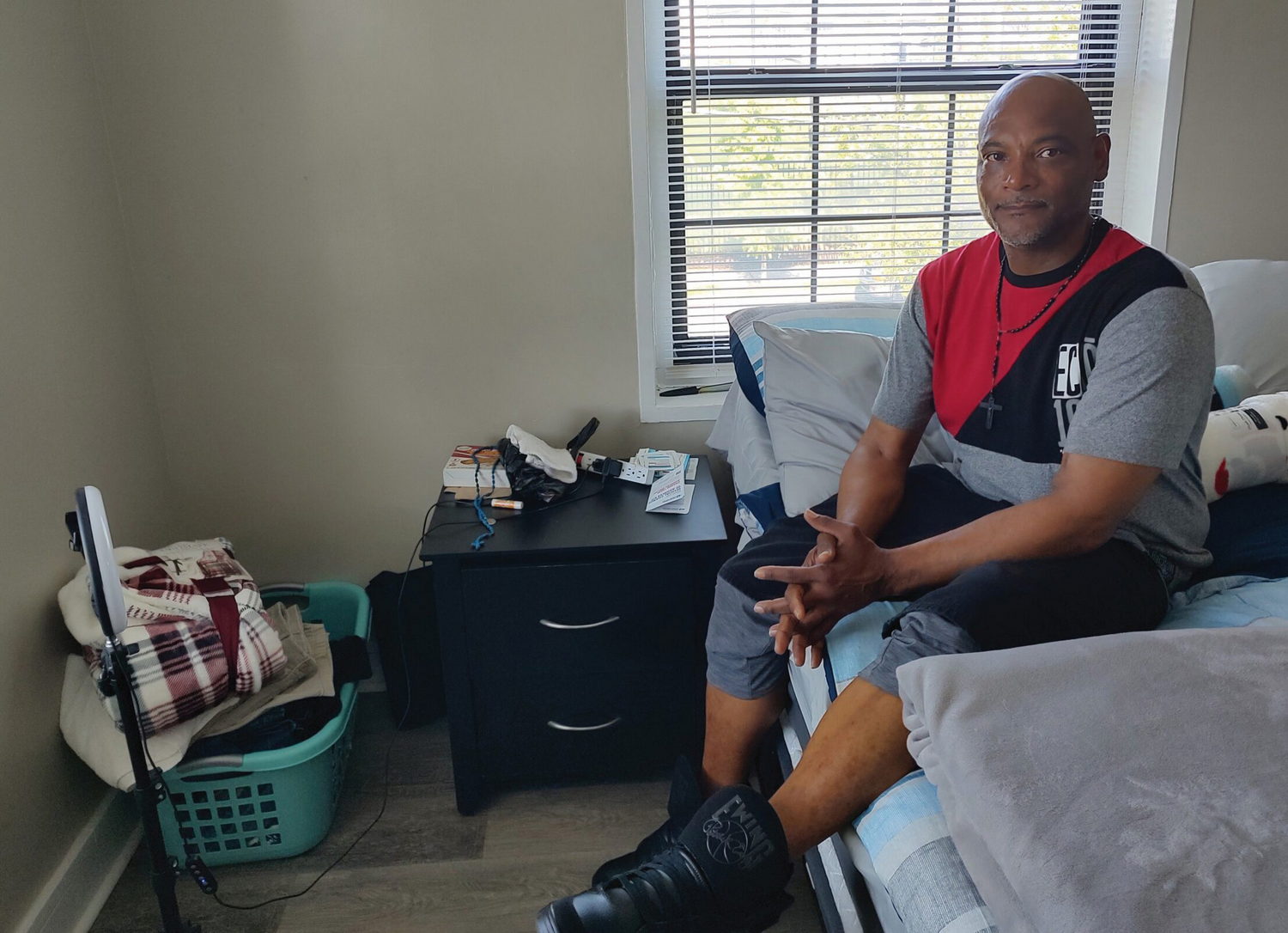From Darkness to Dawn: Britt’s Journey to Recovery and Renewal
Britt sits at his kitchen table overlooking Spalding University’s lacrosse team practice on its sports fields. He has come a long way in the last two years.
“I’ve really been blessed. It’s not one of those Cinderella stories. My story is not done yet. I take it one day at a time,” Britt said. “I’m not really where I want to be, but I’m not where I used to be, and I’m so grateful for that.”
A former client at Ozanam Inn Men’s Emergency Shelter, Britt secured housing and moved into his two-bedroom condo in April. It was recently renovated and fully furnished. Still, that’s small compared to the opportunity to start a new life.
“St. Vincent is really a blessing,” Britt added. “This place gave me more than a bed or a condo, it gave me a purpose. It helped me to learn that responsibility and accountability are a part of life.”
A Louisville native, Britt’s road to recovery was full of detours and delays. At home, he grew up in a dysfunctional environment. He was molested at the age of 8, his dad was a pimp, his stepdad was on drugs, and his family moved a lot. While his mother did her best, Britt’s formative years were trying to please his father and get attention anywhere he could.
“A lot of it was trying to seek the approval of my real father,” he said. “My mother instilled positive values in me, but there were a lot of things that didn’t get instilled. I really thought that fulfilment was in chasing women, in sex, in drugs, and in money. To me, that was the king of the mountain. At some point, when I got there, I never felt as empty as I’ve ever felt in my life. So God let me know that’s not where a successful life is at.”
On the field, Britt excelled in sports at Doss High School, and was offered a scholarship to play running back for Georgetown University. That dream was short lived when injuries and off-the-field issues caused him to drop out of high school his junior year. Years later, Britt would get the highest GED score in Kentucky history.
“I always took myself as being a dummy because I was the only one in my family that didn’t graduate or amount to anything. They all had trades or career jobs. It made me feel like a black sheep,” Britt said.
During his young adult years, Britt had a difficult time learning responsibility. His record is rough—he had stops in prison for fraud and two separate charges of assault, struggled with substance abuse for more than three decades, sold drugs, stole from dope dealers, and has been evicted.
“Sometimes you can lay in a pile of doody so long that it seems like it’s a pretty nice place to be,” Britt added. “Then, somebody comes by and says, ‘Hey man, it stinks. It smells. Don’t you know you’re lying in that?’”
However, it was the path Britt was used to taking for so many years.
“Knowing it and doing something about it or overcoming it are two different things. In other words, I could always dictate my next use, but I could never dictate my next recovery,” he said. “In between all of the darkness, God would give me moments of epiphany.”
In March 2023, Britt was staying in a local homeless shelter. He described it as squalor conditions. It was infested with bed bugs and mice running around.
A couple of months later, Britt was at the Open Hand Kitchen when Kitchen Supervisor Kevin Hyatt told him about Ozanam Inn.
“St. Vincent took me when no one else would. St. Vincent put meaning in my life. I’m very grateful for more than just the things, but the compassion and the people that I met there,” Britt said. “Without St. Vincent, I’d hate to think where I’d be.”
About a year after securing a bed at Ozanam Inn, Britt was given a Housing Voucher to move into his two-bedroom condo. This is through our Collaborative Housing Initiative (CHI), which is one of our off-campus housing programs. CHI provides permanent supportive housing to 46 homeless individuals and
families where at least one member of the household has a disability. Britt, who has battled kidney failure, goes to dialysis three days a week.
CHI enrolls participants who have barriers such as low income, past or
present substance use problems, a criminal record, or a history of victimization. CHI units are scattered-site housing units in various locations throughout the city. Currently, there are 46 total units providing a minimum of 63 beds, but we often provide 80 to 100 beds when serving larger families.
We provide case management to each household, establishing an individualized case plan, connecting them to needed resources, and helping clients set goals that will allow their household to achieve self-sufficiency. We also provide administrative support and a housing specialist to coordinate with landlords.
Your financial generosity is what allows individuals like Britt to experience a Cinderella story on the other side of a long road to recovery.
Tony Nochim
Source: https://www.svdplou.org/
Tags:










0 Comments